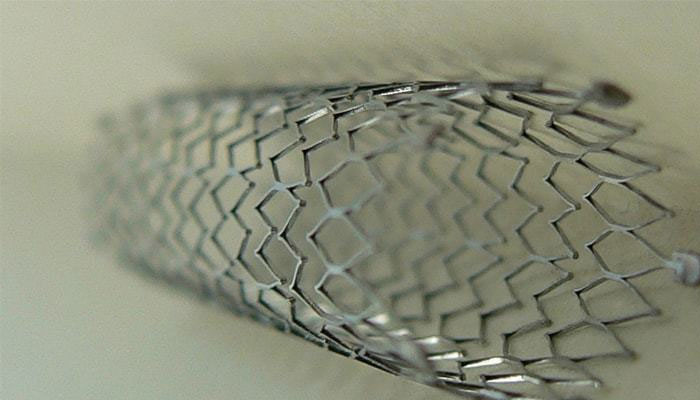

[ad_1]
ISLAMABAD: It is learned that Pakistan has started commercial export of cardiac stents in limited quantities to Iran, Afghanistan and various African countries after successful use in local hospitals.
According to media reports, while speaking during the 21st Health Asia International Exhibition and Conference, Dr. Syed Shahid Noor, chairman of Parbar Shifa Foundation, said that the manufacturing facility in Pakistan is limited as it currently manufactures stents in a single shift. .
Once the capacity is raised from various potential investors, it should be gradually increased to three shifts. Pakistani-made cardiac stents are being used in leading local hospitals such as NICVD and Combined Military Hospitals, making treatment accessible and affordable for patients.
The cost of local cardiac stents is Rs. 25,000, as against the imported brand that costs up to Rs. 150,000. The federal government provided funding of Rs. 331 million to NUST (Islamabad) for the development of Medical Devices Development Center in 2020.
The stent has been approved by Pakistani and European authorities and the company recently received a manufacturing license from DRAP. Apart from Bare Metal Stents (BMS), the facility also has the capability to manufacture Drug Eluting Stents (DES) and Percutaneous Transluminal Coronary Angioplasty Balloon Catheters (PTCA balloon catheters).
Dr. Noor said that ten medical devices have been developed by local companies in collaboration with leading universities and more than 20 devices are under development.
He said that the Drug Regulatory Authority of Pakistan (DRAP) should also revise its regulations to promote medical devices. Drape has asked for 4,000 acres of land to set up a plant or facility for medical device manufacturing, such as pharmaceutical plants.
The government should amend its regulations to promote medical equipment facilities at the local level. He remarked that the government should make a comprehensive plan to develop the medical equipment industry which would create high-tech jobs and help stabilize the country’s macroeconomic indicators.
[ad_2]
Source link
